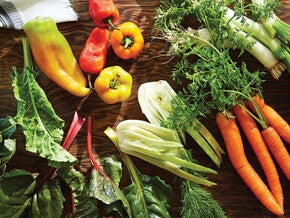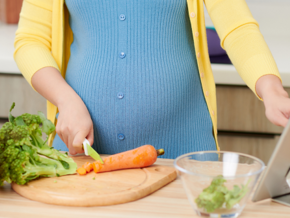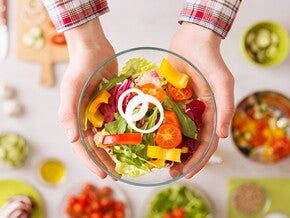
Food for Your First Trimester
The first trimester marks the beginning of motherhood. As you step into this new world, you will begin to experience various changes not only in your body, but in your dietary needs as well.
The first trimester marks the beginning of motherhood. As you step into this new world, you will begin to experience various changes not only in your body, but in your dietary needs as well. When your body is supporting your child, it is important to get the right nutrients from a wholesome and balanced diet. Here are some tips to help you out on finding the right food for the first trimester.
During the first trimester, your child is beginning to develop and grow. As your body prepares itself for your child, there are a few changes you may notice and experience. You may feel fatigued more easily and quickly than before. Your body is supporting your child, and could tire you out more easily than before. Naps are a great way to keep your energy up and stay refreshed throughout the day.
Food cravings and aversions can be common among pregnant mothers. Your tastes may change during pregnancy, and this is completely normal. As long as you continue to maintain a safe, balanced, and healthy diet, you and your child will be fine.
To start off, your diet during the first trimester should be rich in folate, or folic acid, which is a type of vitamin B. Folic acid is the man-made (synthetic) form of folate that is found in supplements and added to fortified foods.
Folate is a generic term for both naturally occurring folate found in foods and folic acid. During pregnancy, your child will need enough folate to help reduce the risk of neural tube defects. Folate also helps maintain growth and development of an unborn child, and plays a role in the formation of red blood cells. Moreover, it helps prevent anaemia in mothers. You can get folate naturally in vegetables such as spinach, broccoli and lentils.
If you’re feeling queasy, you can try foods rich in vitamin B6, such as fish, meat, poultry, fortified cereals, starchy vegetables and non-citrus fruits. You will also need plenty of iron-rich foods. Iron helps support the production of new red blood cells for both you and your child. It is a component of haemoglobin in red blood cells, which carries oxygen to all parts of your body and also to your child via the placenta. Iron helps prevent anaemia when you are pregnant.
You can also try probiotics. Probiotics are live, beneficial bacterial cultures that will provide health benefits when consumed in the right amounts. There are nearly 80% of the antibodies producing cells that are present in our digestive tract. Probiotics help maintain a balance of beneficial and harmful bacteria for a healthy digestive tract.
To support a wholesome diet, you can try our specially designed Nestlé MOM. This delicious formulated milk powder is packed with 20 vitamins and minerals including folic acid, calcium, iron, as well as vitamin A and C. Nestlé MOM also contains DHA (125mg per 100g powder), which is found abundantly in the brain. Moreover, Nestlé MOM provides protein to support your additional requirements during pregnancy.
That’s not all. Nestlé MOM contains the goodness of BIFIDUS BL. BIFIDUS BL contains 2 type of beneficial bacteria that helps to support your gut health. Get the right nutrition during pregnancy with Nestlé MOM; you can enjoy its benefits as soon as you're pregnant! Just 2 glasses will provide you with loving nutrition right from day one.
As you learn about the nutrition you need throughout your pregnancy, remember to take it step by step. Talk to your doctor or health professional on any concerns about your diet. Your journey of motherhood has just begun, and it’s always best to start it in the right direction.


























